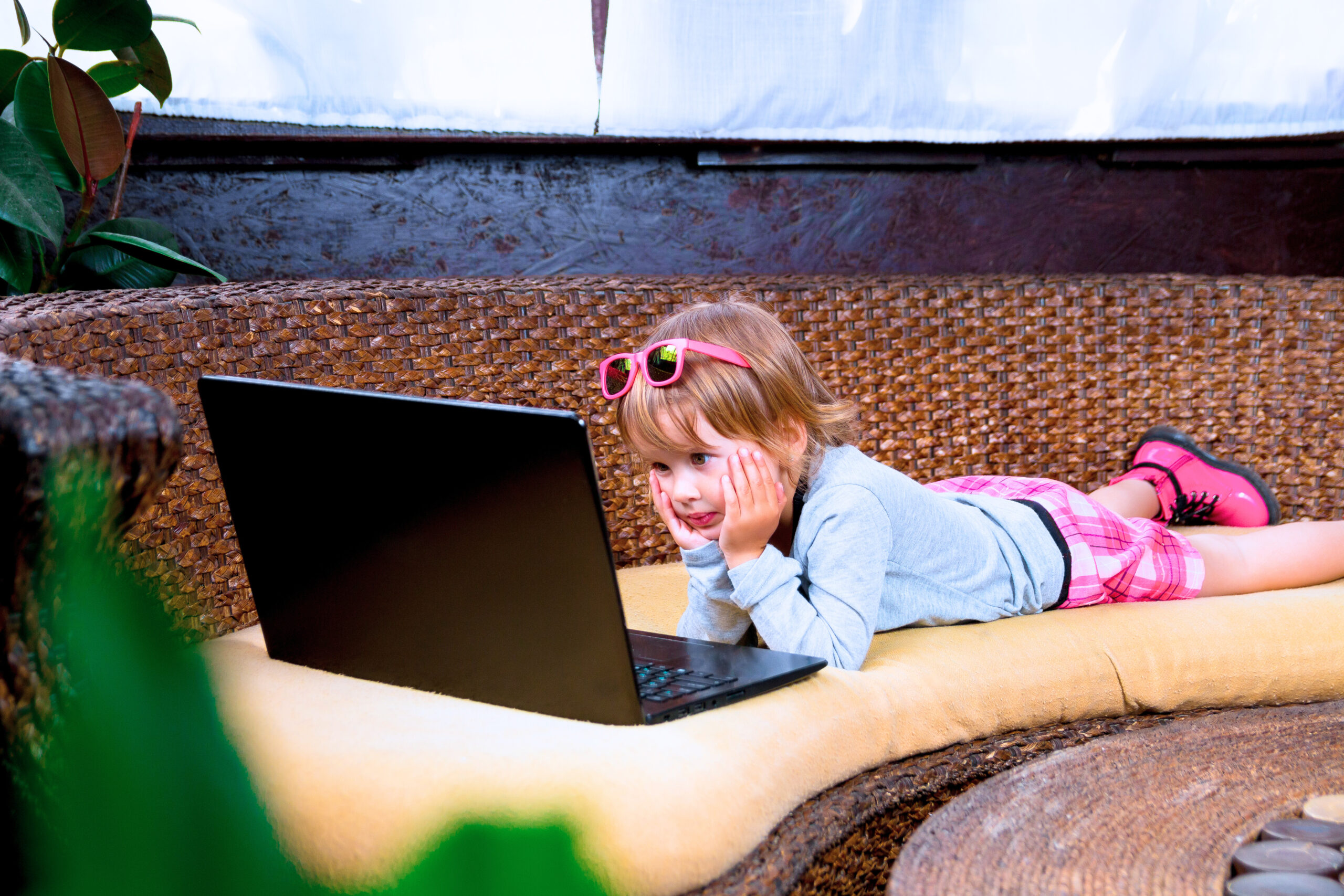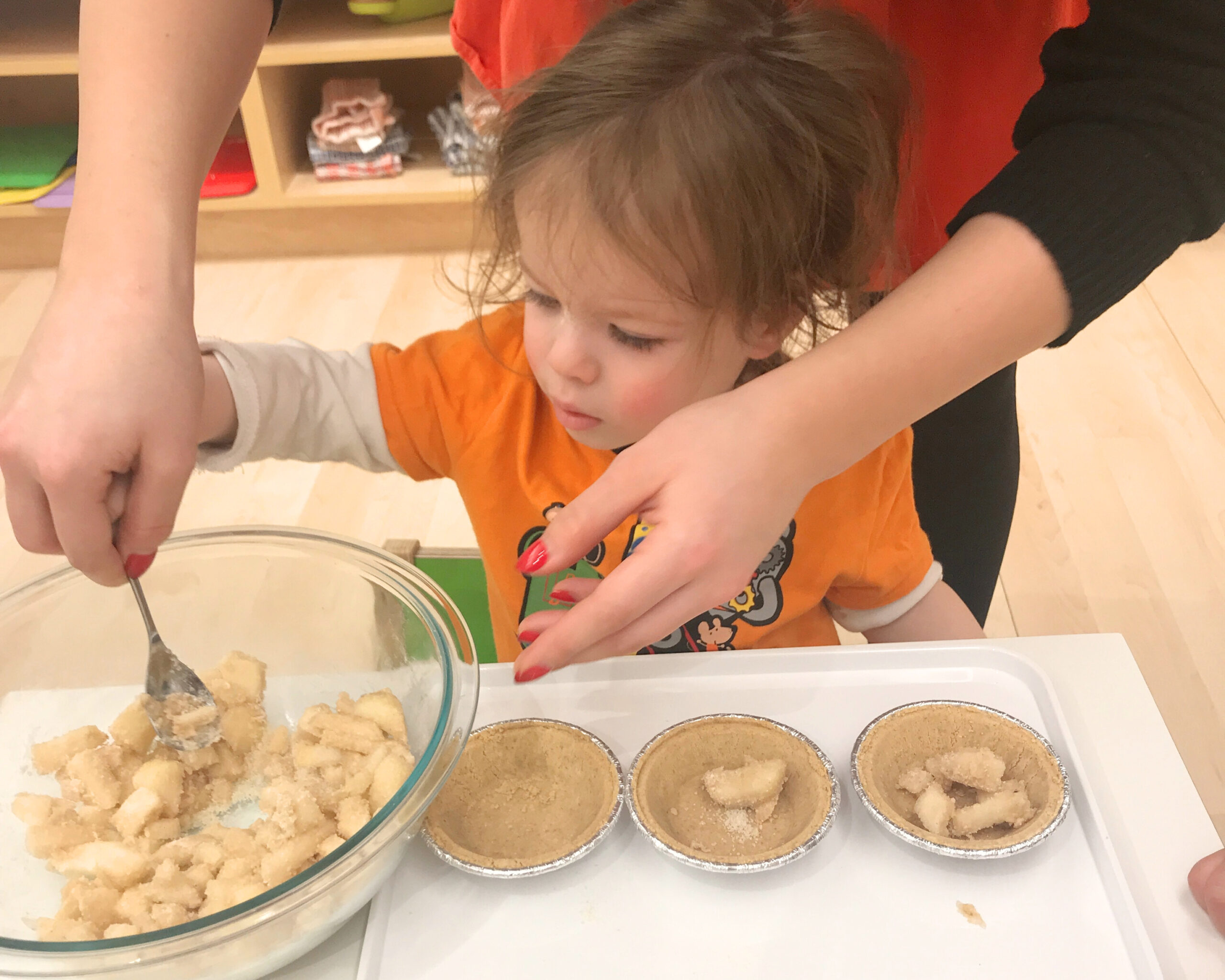The topic of screen time can make anyone squirm a little bit. Here I am sitting on my computer, looking at that screen, with at least two other screens within three feet of me. We can feel guilty or shameful about how much time we spend on our screens, or we can reframe our relationship with our screens. Especially when raising little ones in this digital age, teaching them to have a healthy relationship with technology can help limit screen time and even help us reframe our own relationship with our screens!
Pre-pandemic, there were already a lot of TV shows and other educational content for little ones online. Since 2020, the demand for online content has only increased, and educational online platforms, such as Playgarden Prep Online, have blossomed. Through educational videos, Zoom with teachers, and much more, you can trust your little one is spending time on screens productively. Online preschool programs available on tablets support learning by promoting social, emotional, and cognitive growth. Playgarden Online was created by experts to encourage early learning through connections with peers and teachers via online preschool. Young children in online preschool build strong foundational skills that help with future school success.
According to child-development specialist and attending pediatrician at New York-Presbyterian Komansky Children’s Hospital, Dr. Jennifer F. Cross, there are studies beginning to show effects of prolonged screen time on children’s brain development, stating “if young children spend most of their time engaging with an iPad, smartphone, or the television, all of which are highly entertaining, it can be hard to get them engaged in non-electronic activities, such as playing with toys to foster imagination and creativity, exploring outdoors, and playing with other children to develop appropriate social skills.”
So tablets, iPads, and streaming services all have great educational content that we want our little ones to learn from, as well as shows and games they enjoy. But how do we set boundaries around screen time and, furthermore, teach and practice responsibility around screen time?
From the beginning, boundaries need to be set around the use of tablets, screens, and any technology your little one may be using. Providing no boundaries or rules with screens can lead to children dictating when and where they use it. Screen time and the boundaries set are going to look different from family to family.
For a jumping off point, studies show little ones ages 2 through 5 should only be on screens for about one hour a day. Consider breaking up the screen time throughout the day; 20 minutes here or there can also come in handy if you need to keep your little one busy while handling any other responsibilities. Try to avoid your little one having screen time early in the morning or late at night to prevent blue light exposure, which will help prevent inconsistent sleeping patterns.
Let the screen time begin with a productive learning activity before allowing “free play.” Encourage your little one to choose one learning initiative to complete before allowing them to enjoy entertainment. Having a screen to learn from can also inspire layered learning when paired with hands-on activities. With Playgarden Prep Online, little ones can do worksheets and activities alongside teachers in videos that supplement the online preschool learning after tablet use, so little ones can understand concepts more deeply.
Use a timer to monitor screen time, and when the timer goes off, have your little one turn the timer off and put away the screen themselves. This not only removes negotiating from the equation, but also frames the screen as something to “put away,” not something that you as a parent have to “take away.” In addition, as they learn this routine, if you have screen time while your little one has screen time, they will be more inclined to put their screen away if you put your own away as well.
Introducing little ones to technology is important, as it introduces responsibility, builds technological skills they will use at school, promotes school readiness, encourages creativity, and allows access to friends and family. Teaching them how to have a healthy relationship with that technology starts when they pick up that first screen.




